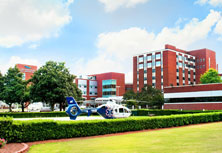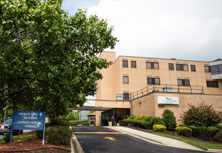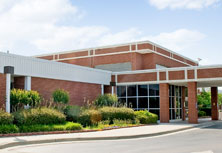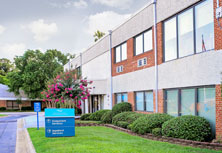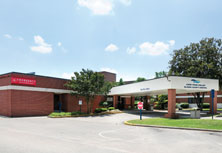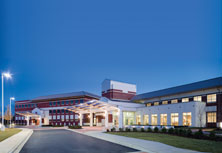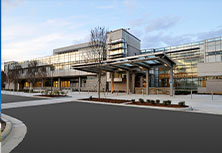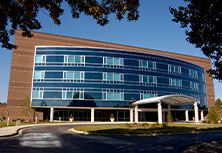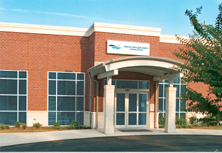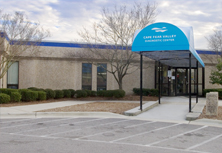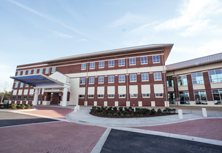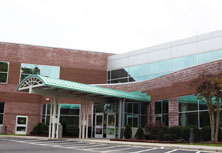Non-Invasive Diagnostic Testing
At Cape Fear Valley we offer a wide array of non-invasive cardiac diagnostic testing. Some of the options we offer are:
Echocardiogram (ECHO)
An echocardiogram uses sound waves to create a detailed picture of your heart. It can be used to diagnose a number of heart conditions including valve disorders, congenital heart disease, tumors, blood clots, infections or fluid around the heart. It is also used to evaluate heart function for possible mechanical complications after a heart attack. It may be used to determine the effects of high blood pressure on the heart.
Electrocardiogram (EKG)
An electrocardiogram, also called an EKG or ECG, is a simple test that detects and records the electrical activity of your heart. EKGs provide information about heart rate and the regularity of your heart rhythm. EKGs give indirect clues about heart chamber size, heart wall thickness, and the overall electrical conduction system of the heart. Changes in your EKG pattern may indicate heart injury or a heart attack.
Electrophysiology
An electrophysiology study involves mapping the electrical irregularities of the heart. Studies help diagnose, treat and prevent problems with the heart’s electrical system, such as irregular heartbeats.
In November 2008, Cape Fear Valley opened an electrophysiology lab help patients suffering from irregular heartbeats. Devices such as pacemakers and defibrillators are commonly used to help with these problems; however, cardiologist specially trained in electrophysiology, can now perform non-surgical treatments, called cardiac ablations, to cure patients.
Cardiac ablations, also called radiofrequency ablations, are performed in a special electrophysiology lab (EP lab) similar to a cardiac catheterization lab. The procedures take about three hours, and the patient is under anesthesia. Physicians guide a catheter into a patient’s heart muscle while watching real-time X-rays (fluoroscopy) on overhead monitors. They then electronically “map” the heart surface to pinpoint where the errant heart signal is coming from. Once it’s found, it is ablated (burned) with radio frequency waves emitted from the catheter tip.
Nuclear Cardiac Imaging Study (Stress Test)
A nuclear cardiac imaging study is a non-invasive procedure that evaluates blood flow to your heart muscle. This procedure will last approximately six hours and involves testing in multiple phases.
During stress testing, you will walk on a treadmill (or are given medicine if you are unable to exercise) to make your heart work harder and beat faster. You will be connected to EKG and blood pressure monitors during this test so doctors can evaluate how your heart performs during exercise.
During a nuclear stress test, radioactive tracer is injected into your bloodstream after you reach your maximum level of exercise. You then lie down on a special table under a camera that shows the flow of blood through your heart and arteries by tracing the nuclear material in your blood. This picture of your heart when it is "stressed" is then compared with a picture taken of your heart at its resting rate.
A stress test lets the doctor see how your heart responds to exercise, and also what level of exercise is appropriate for you. This test also gives doctors vital information about the possibility of blockage of the blood vessels that supply the heart. Blockage of these vessels may lead to a heart attack if not detected and treated.
Heart Stories
- Heart Center
- Patient Stories
